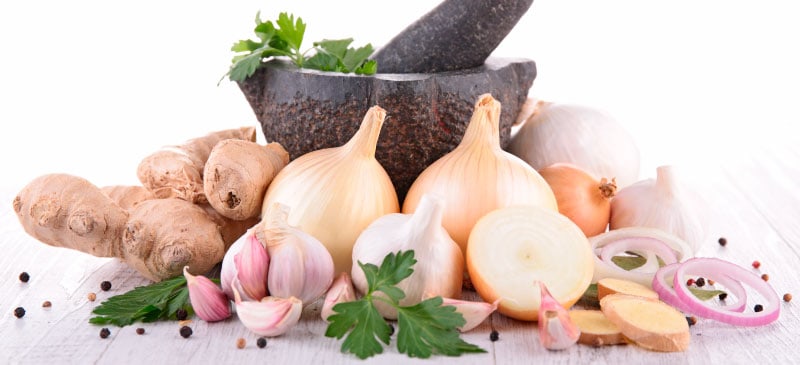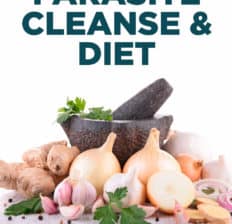This Dr. Axe content is medically reviewed or fact checked to ensure factually accurate information.
With strict editorial sourcing guidelines, we only link to academic research institutions, reputable media sites and, when research is available, medically peer-reviewed studies. Note that the numbers in parentheses (1, 2, etc.) are clickable links to these studies.
The information in our articles is NOT intended to replace a one-on-one relationship with a qualified health care professional and is not intended as medical advice.
This article is based on scientific evidence, written by experts and fact checked by our trained editorial staff. Note that the numbers in parentheses (1, 2, etc.) are clickable links to medically peer-reviewed studies.
Our team includes licensed nutritionists and dietitians, certified health education specialists, as well as certified strength and conditioning specialists, personal trainers and corrective exercise specialists. Our team aims to be not only thorough with its research, but also objective and unbiased.
The information in our articles is NOT intended to replace a one-on-one relationship with a qualified health care professional and is not intended as medical advice.
Parasite Cleanse and Diet
August 13, 2022

If you suspect you may have a parasitic infection, there is a natural way to treat it. It’s called a parasite cleanse.
Parasitic infections have become more common with international travel over time. We now know that a variety of parasites can infect the intestinal tract, leading to a variety of digestive symptoms, such as constipation, diarrhea, vomiting, and heartburn, as well as fatigue and chills.
A parasite cleanse involves eating a diet that’s free of foods that can feed parasites (such as sugar and grains) and consuming more of the foods that are anti-parasitic, such antioxidant-rich foods. It’s pretty close to a Paleo diet, which provides you with essential nutrients from things like probiotic foods, herbs, vegetables and more.
Supplements can also be helpful for supporting your gastrointestinal and immune systems while you recover on a parasite cleanse.
What Are Parasites?
A parasite is an organism that lives on or in a host and gets its food from or at the expense of its host. In other words, the parasite uses the resources of the person it’s living inside of, such as the very food that that person eats, in order to survive. Yes, it’s not pleasant.
Worse, parasites can cause disease in humans. Certain types of diseases caused by these organisms are easily treated, while some are not.
There are three main classes of parasites that can cause disease in humans: protozoa, helminths and ectoparasites. Examples of some serious parasitic diseases include filariasis, malaria and babesiosis.
How does someone become infected with a parasite?
Believe it or not, a relatively high percentage of adults living in the United States may carry parasites. Where and how does somebody get infected with a parasite?
Parasites are generally acquired from consuming contaminated food or water, but people with imbalanced gut flora, leaky gut syndrome or a weakened immune system may be more susceptible. Some can also be spread through the bite of a mosquito or sand fly, or transmitted to humans from animals such as cows and pigs that are infected with parasites like Cryptosporidium or Trichinella.
One potential cause of parasites is eating pork, especially if it’s undercooked or raw. Pork can carry parasites and worms due to the poor conditions that pigs/hogs are typically raised in, so if this type of meat is regularly included in your diet, there’s a chance that you may be susceptible to carrying one.
Other types of undercooked meat and seafood can also transfer harmful organisms, including beef, shellfish and crab.
International travel is another potential cause. If you live in the United States or Europe but have ever been to another country like China, India, Africa or Mexico, there’s a chance that drinking the local water and eating the food in these places may have caused you to picked up a parasite.
According to the Centers for Disease Control and Prevention (CDC), “Globally, contaminated water is a serious problem that can cause severe pain, disability and even death.” Contaminated water includes not only drinking water, but water from swimming pools, hot tubs, lakes, rivers or the ocean.
If you’ve ever returned from an internal trip and developed dysentery or an another digestive problem afterward, you might be dealing with what the CDC calls persistent travelers’ diarrhea, which refers to gastrointestinal symptoms that last for more than 14 days. According to the CDC, the pathogenesis of persistent diarrhea in returned travelers is sometimes caused by an infection as a result of a parasitic organism.
In addition to being careful about the food and water you consume when traveling, proper sanitation and hygiene are also essential to preventing parasites and similar illnesses.
Parasite Cleanse Diet
If you’ve established that you have a parasite, you’re probably looking for the best parasite cleanse to help you recover. Part of the healing process is following a parasite cleanse diet, while another important part is supplementing with herbal remedies.
Below are suggestions for following a parasite cleanse diet, as well as more practical tips and supplement recommendations that can help kill off the worms and parasites in your system.
1. Parasite Cleanse Supplements
When supplementing to kill parasites, there are natural anti-parasite compounds you’ll want to use. One such product is called Paracomplete, which is a parasite cleanse supplement that contains thyme leaf, something called beberine sulfate (that you can sometimes find it in coconut and can kill off parasites), oregano, grapefruit seed extract and uva ursi leaf.
You can also essentially create your own parasite cleanse concoction using supplements that you can get in tincture form. These include black walnut, wormwood, olive leaf and garlic.
Oftentimes, you can find a parasite cleanse with these herbal ingredients at your local health food store or get them individually.
Here are the top herbal supplements for a your very own parasite cleanse:
- Black walnut (250 milligrams 3x daily) — Has been used historically for the treatment of parasites.
- Wormwood (200 milligrams 3x daily) — It’s known for its anti-parasitic properties.
- Oregano oil (500 milligrams 4x daily) — Oregano oil has both antibacterial and anti-parasitic effects.
- Grapefruit seed extract (take as directed) — Has been shown to have antimicrobial properties against a wide range of organisms.
- Clove oil (500 milligrams 4x daily or 4 cups of tea) — Contains high amounts of eugenol, a compound that has been shown to help kill harmful organisms.
- Probiotics (1 or 2 capsules daily) — These “good guy” bacteria help repopulate the gut with microbes that support digestive health.
In addition to those above, other supplements that may be helpful include:
- anise
- barberry
- berberine
- mint
- goldthread
Most experts recommend you do about two weeks of a parasite cleanse, taking the supplements above, then take a week off. After your one-week break, jump back into the plan for two more weeks.
The protocol itself is an important part of your treatment, just as much as taking the supplements. Try to adhere to the timing of the plan to get the best results.
2. Following an Anti-Parasite Diet
A parasite cleanse diet helps kill harmful organisms living in your digestive system by fighting bad bacteria and fungus that these parasites live off of. This type of cleanse involves following a diet that is free of all sugar and all grains — pretty close to a Paleo diet.
I recommend that you limit your fruit intake or eat no fruit whatsoever. So rather than a berry smoothie, drink a coconut smoothie with coconut milk, chia seeds and protein powder.
For lunch, do a big salad, and for dinner, prepare organic meat and double the vegetables, staying completely away from any form of grains or sugar, including fruit.
Another food that can be very healing when fighting harmful organisms in your GI system is pumpkin seeds, as well as pumpkin seed oil. Pumpkin seeds support gastrointestinal health because they contain certain antioxidants and other protective compounds, such as tetracyclic triterpenes and cucurbitins, that can paralyze worms and make it difficult for them to survive in the intestinal walls.
Eat up to one cup of pumpkin seeds a day — for example, by adding some to a smoothie in the morning and another half a cup in the afternoon, or you can make pumpkin seed butter, throwing this into something like a blender along with pumpkin seed oil that most health food stores should carry.
Here are some other top anti-parasite foods:
- Garlic and onions – Both of these immune-boosting vegetables have anti-parasitic effects due to their sulfur compounds and antioxidants that can destroy pathogenic organisms.
- Herbs – Certain herbs, like oregano and ginger, can have antibacterial and antiparasitic effects because they help increase the production of stomach acid, which can kill parasites and prevent infections.
- Pineapple, papaya and their juices – These fruits contain compounds that can help decrease production of pro-inflammatory cytokines that can result in colon inflammation. As part of a juice cleanse, their juices can also have anti-parasitic effects.
- Coconut oil – Coconut oil has antibacterial and antimicrobial properties.
- Probiotic-rich foods – Consuming high probiotic foods like kefir, sauerkraut and yogurt can keep parasites in check and improve the health of the gut.
- Apple cider vinegar — Helps restore healthy pH balance and can generally improve digestion.
- Other fresh vegetables — These are rich sources of protective compounds that help nourish the gut, and they provide fiber, which encourages regular bowel movements.
Here are the foods you want to avoid:
- Added sugar – Can feeds harmful organisms in the gut and contribute to inflammation.
- Processed foods – Do not support immune health and may be hard to break down.
- Alcohol – Does not allow for proper immune system functioning.
- Wheat – Many grains, especially those containing gluten, can break down into sugar quickly and cause intestinal inflammation.
- Pork – Can potentially be contaminated with parasites.
3. Colonics
It’s important to prevent constipation and encourage regular bowel movements when cleansing because this is what actually rids your body of the parasites. Some experts recommend doing a few colonics to help improve gastrointestinal health, typically two to three colon cleanses once a week for three weeks. This can be done while doing the two- to four-week parasite cleanse.
Together these methods can be an effective strategy for helping to rid your body of harmful organisms while also nourishing yourself from the inside out.
Symptoms of Parasitic Infection
What are some signs that you may have a parasite? The most common symptoms of parasitic infection include:
- Digestive issues, including constipation, diarrhea, vomiting, gas, heartburn
- Stomach pains and tenderness
- Loss of appetite
- Fatigue
- Chills
- Aches and pains
- Symptoms of dehydration
When should you visit a doctor?
If you think that you may have parasites, it’s always recommended that you visit a doctor, such as a gastroenterologist, to be tested.
Your doctor can run a number of tests to learn more about what may be happening in your GI tract — for example, by looking for signs of inflammation or looking more closely at your stool. These tests can include a fecal (stool) exam, endoscopy/colonoscopy , blood tests, X-rays or sometimes an MRI.
It’s also possible to do stool sample tests at home that may detect parasites by looking for eggs in your stool. You can bring these results to your doctor to learn more about potential treatment options, or you may try treating the issue yourself using the steps recommended above (or ideally do both).
Risks and Side Effects
Symptoms caused by parasites can range from mild to very serious, depending on the type of organism and the individual who’s affected. Those with compromised immune systems or other gastrointestinal conditions are at the greatest risk for developing serious illnesses when they come into contact with a parasite, so it’s always important to get professional help if this applies to you.
What types of side effects might you encounter when following a parasite cleanse protocol? It’s possible that you may feel run down or have digestive issues for a couple weeks while recovering.
If you lose your appetite, have diarrhea, and aren’t able to drink or eat much, fatigue can be common. Make sure to keep drinking fluids, and try to eat smaller meals regularly to keep your energy up.
Not all of the herbal supplements mentioned above are safe for every person, so be careful about how you treat parasites if you take any prescription medications. Speak with your doctor before beginning to use the supplements mentioned above if you’re on daily medications.
Also avoid giving these supplements to children, and don’t use them if you’re pregnant or breastfeeding since it isn’t entirely known how safe this is.
Conclusion
- Parasites are organisms that live on or in a host and get their food from or at the expense of the host. Side effects of being infected with one can include digestive issues like diarrhea and vomiting, stomach pains, loss of appetite, aches, and fatigue.
- If you’ve established that you have a parasite, you’re probably looking for the best parasite cleanse to help you recover. Part of the healing process is following a parasite cleanse diet, which includes avoiding sugary and processed foods and eating plenty of antioxidant-rich foods.
- Another important part of the treatment plan is supplementing with herbal remedies.
- Which supplements are included in the best parasite cleanses? Those that seem to be most effective include black walnut, grapefruit extract, oregano oil, clove oil, wormwood and probiotics.
- Don’t start this type of treatment plan without consulting with a doctor if you have a compromised immune system or take medications.









